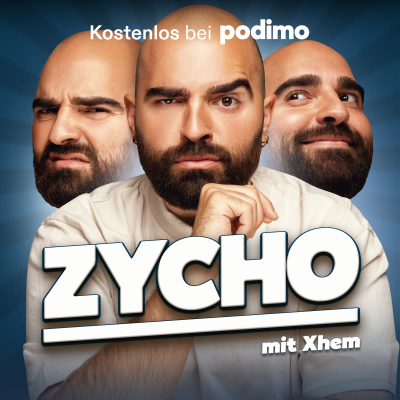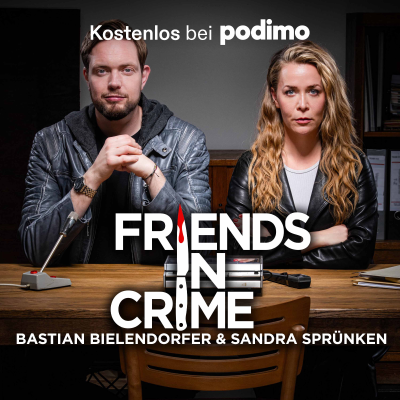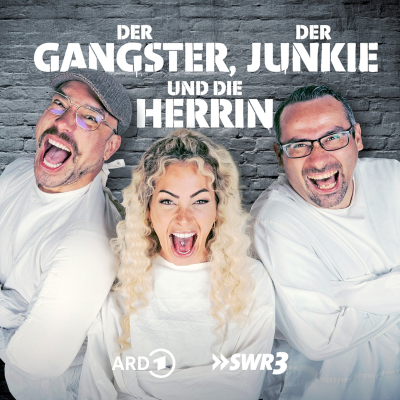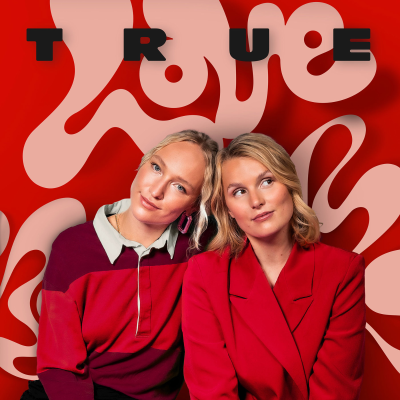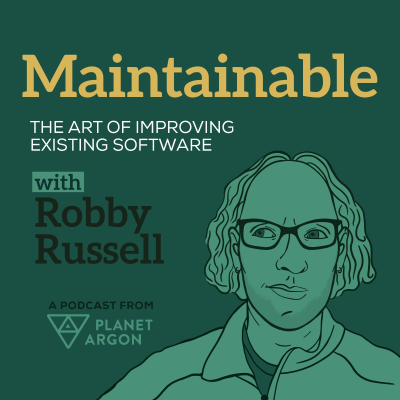
Maintainable
Podcast von Robby Russell
Nimm diesen Podcast mit
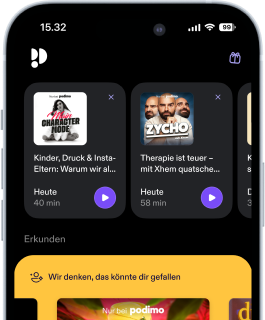
Mehr als 1 Million Hörer*innen
Du wirst Podimo lieben und damit bist du nicht allein
Mit 4,7 Sternen im App Store bewertet
Alle Folgen
215 FolgenRobby is joined by Sara Jackson [https://vmst.io/@csara], Senior Developer at thoughtbot [https://thoughtbot.com], to explore the practical ways teams can foster resilience—not just in their infrastructure, but in their everyday habits. They talk about why documentation is more than a chore, how to build trust in test suites, and how Chaos Engineering at the application layer can help make the case for long-term investment in maintainability. Sara shares why she advocates for writing documentation on day one, how “WET” test practices have helped her avoid brittle test suites, and why she sees ports as a powerful alternative to full rewrites. They also dive into why so many teams overlook failure scenarios that matter deeply to end users—and how being proactive about those situations can shape better products and stronger teams. EPISODE HIGHLIGHTS [00:01:28] What Well-Maintained Software Looks Like: Sara champions documentation that’s trusted, updated, and valued by the team. [00:07:23] Invisible Work and Team Culture: Robby and Sara discuss how small documentation improvements often go unrecognized—and why leadership buy-in matters. [00:10:34] Why Documentation Should Start on Day One: Sara offers a “hot take” about writing things down early to reduce cognitive load. [00:16:00] What Chaos Engineering Really Is: Sara explains the scientific roots of the practice and its DevOps origins. [00:20:00] Application-Layer Chaos Engineering: How fault injection can reveal blind spots in the user experience. [00:24:36] Observability First: Why you need the right visibility before meaningful chaos experiments can begin. [00:28:32] Pitching Resilience to Stakeholders: Robby and Sara explore how chaos experiments can justify broader investments in system quality. [00:33:24] WET Tests vs. DRY Tests: Sara explains why test clarity and context matter more than clever abstractions. [00:40:43] Working on Client Refactors: How Sara approaches improving test coverage before diving into major changes. [00:42:11] Rewrite vs. Refactor vs. Port: Sara introduces “porting” as a more intentional middle path for teams looking to evolve their systems. [00:50:45] Delete More Code: Why letting go of unused features can create forward momentum. [00:51:13] Recommended Reading: Being Wrong by Kathryn Schulz. RESOURCES & LINKS * Sara on Mastodon [https://vmst.io/@csara] * thoughtbot [https://thoughtbot.com] * RubyConf 2024 Talk – Chaos Engineering on the Death Star [https://www.youtube.com/watch?v=pUjJxcjPDhA] * Book: Being Wrong by Kathryn Schulz [https://www.harpercollins.com/products/being-wrong-kathryn-schulz?variant=32123000487970] * Flu Shot on GitHub [https://github.com/nucc/flu_shot] * ChaosRB on GitHub [https://github.com/BookingSync/chaos-rb] * Semian from Shopify — a chaos engineering toolkit for Ruby [https://github.com/Shopify/semian] THANKS TO OUR SPONSOR! Turn hours of debugging into just minutes! AppSignal [https://www.appsignal.com/?utm_source=maintainable&utm_medium=podcast] is a performance monitoring and error-tracking tool designed for Ruby, Elixir, Python, Node.js, Javascript, and other frameworks. It offers six powerful features with one simple interface, providing developers with real-time insights into the performance and health of web applications. Keep your coding cool and error-free, one line at a time! Use the code maintainable to get a 10% discount for your first year. Check them out! [https://www.appsignal.com/?utm_source=maintainable&utm_medium=podcast] Subscribe to Maintainable on: * Apple Podcasts [https://podcasts.apple.com/us/podcast/maintainable/id1459893010] * Spotify [https://open.spotify.com/show/6Ah6xxZ04VQBqjBB5ZU0Ll?si=1ZcnrwoJSNiksYgDqsRmRQ] Or search "Maintainable" wherever you stream your podcasts. Keep up to date with the Maintainable Podcast by joining the newsletter. [https://maintainable.fm/newsletter/]
CTO coach Joel Chippindale [https://monkeysthumb.co.uk] joins Robby to share what he's learned over two decades of building and leading software teams. Joel argues that maintainability has less to do with “clean code” and more to do with how teams communicate, prioritize, and make progress visible. Drawing on his time at Unmade and his current coaching practice, Joel outlines practical ways teams can build trust, navigate brittle systems, and stop letting technical debt conversations get lost in translation. EPISODE HIGHLIGHTS [00:01:10] A Working Definition of Maintainability Joel explains why “software that’s easy to keep changing” is the gold standard—and why context matters as much as code. [00:05:24] The Pitfalls of Pre-Optimization How developers can trap themselves by designing for futures that may never arrive. [00:10:40] Challenging the Iron Triangle Joel pushes back on the idea that teams must sacrifice quality for speed or cost. [00:15:31] Quality Is a Team Conversation Why code quality starts long before you open your editor. [00:20:00] Unmade Case Study: From Chaos to Confidence How Joel helped a struggling team at Unmade regain trust by delivering less—and showing more. [00:28:08] Helping Business Stakeholders Buy Into Maintenance Work How to reframe backend investments in terms that resonate across departments. [00:33:40] First Steps for Fragile Systems What Joel looks for when coaching teams overwhelmed by legacy code. [00:41:32] The Value of Boring Technology Why solving real problems matters more than chasing resume polish. [00:45:20] The Case for Coaching What makes leadership coaching valuable—and why it's not a sign of weakness. [00:51:10] Building Your Manager Voltron Joel shares why every developer should cultivate their own support system, including mentors, peers, and coaches. RESOURCES & MENTIONS * Joel’s Coaching Site – Monkey’s Thumb [https://monkeysthumb.co.uk/] * Joel on Mastodon [https://social.monkeysthumb.co.uk/@joel] * “Take Back Control of Code Quality” – Joel’s Blog Post [https://blog.mocoso.co.uk/posts/talks/take-back-control-of-code-quality/] * “Manager Voltron” by Lara Hogan [https://larahogan.me/blog/manager-voltron/] * Never Split the Difference [https://www.ethicalbooksearch.com/books/m/ol:OL18819818W/never-split-the-difference-chris-voss-tahl-raz] by Chris Voss THANKS TO OUR SPONSOR! Turn hours of debugging into just minutes! AppSignal [https://www.appsignal.com/?utm_source=maintainable&utm_medium=podcast] is a performance monitoring and error-tracking tool designed for Ruby, Elixir, Python, Node.js, Javascript, and other frameworks. It offers six powerful features with one simple interface, providing developers with real-time insights into the performance and health of web applications. Keep your coding cool and error-free, one line at a time! Use the code maintainable to get a 10% discount for your first year. Check them out! [https://www.appsignal.com/?utm_source=maintainable&utm_medium=podcast] Subscribe to Maintainable on: * Apple Podcasts [https://podcasts.apple.com/us/podcast/maintainable/id1459893010] * Spotify [https://open.spotify.com/show/6Ah6xxZ04VQBqjBB5ZU0Ll?si=1ZcnrwoJSNiksYgDqsRmRQ] Or search "Maintainable" wherever you stream your podcasts. Keep up to date with the Maintainable Podcast by joining the newsletter. [https://maintainable.fm/newsletter/]
MELANIE SUMNER: WHY CONTINUOUS ACCESSIBILITY IS A STRATEGIC ADVANTAGE Melanie Sumner, Product Accessibility Lead for Design Systems at HashiCorp [https://www.hashicorp.com/], joins Robby to talk about what it takes to scale accessibility across legacy products—and how aligning design and engineering processes creates lasting change. Melanie shares her work making Ember.js more accessible, her team’s philosophy behind their design system, and why she treats accessibility like any other technical concern. From the pitfalls of nested interactive elements to the strengths of Ember's conventions and codemods, this conversation offers a roadmap for integrating accessibility into every layer of product development. Melanie also reflects on why she trademarked the term Continuous Accessibility, how it fits into product lifecycles, and what other frameworks can learn from the Ember community’s approach. > “Accessibility is a technical problem with a technical solution.” Melanie joins us from Chicago, Illinois. EPISODE HIGHLIGHTS [00:01:00] What Well-Maintained Software Looks Like: Consistency, purpose, and bridging design and engineering [00:02:30] Building a Unified Design System Across 10+ Legacy Products [00:03:30] Creating Component Requirements Before Design or Code [00:05:00] Designing with Accessibility Defaults—and Providing Bridges for Legacy [00:07:00] How Ember’s Conventions Help Scale Front-End Systems [00:09:30] Who Uses Ember—and Why It's a Fit for Teams with Big Requirements [00:13:30] Technical Debt in Design Systems and the Cost of Rushing [00:16:30] How They Future-Proof Components and Avoid Over-Engineering [00:19:00] What “Continuous Accessibility” Means in Practice [00:21:00] Accessibility Testing and the Limits of Automation [00:23:00] Common Accessibility Mistakes: Nested Interactives and Misused DIVs [00:24:30] Keyboard Navigation as a Litmus Test [00:26:00] Text Adventure Games and Accessibility as a Playable Experience [00:28:30] The Origin of Her Accessibility Journey at UNC Chapel Hill [00:31:00] Why She Avoids Framing Accessibility in Emotional Terms [00:32:45] Compliance as a Business Driver for Accessibility [00:35:00] Open Source Work on Testing Rules Across Frameworks [00:38:00] The Navigation API and Fixing Single-Page App Accessibility [00:40:30] HTML’s Forgiveness and the Illusion of “Good Enough” [00:43:00] Advice for Engineers Advocating for Accessibility Without Authority [00:46:45] Book Recommendation: Cradle Series by Will Wight [00:48:30] Where to Follow Melanie: melanie.codes [https://melanie.codes] LINKS AND RESOURCES * Melanie's Website [https://melanie.codes] * Helios Design System at HashiCorp [https://helios.hashicorp.design/] * Cradle Series by Will Wight [https://www.willwight.com/] * Ember Community Survey [https://emberjs.com/survey/2024/] * A11y Automation GitHub Project [https://github.com/melsumner/a11y-automation] * Axe-core [https://github.com/dequelabs/axe-core] Follow Melanie: * GitHub [https://github.com/melsumner] * LinkedIn [https://www.linkedin.com/in/melaniesumner/] THANKS TO OUR SPONSOR! Turn hours of debugging into just minutes! AppSignal [https://www.appsignal.com/?utm_source=maintainable&utm_medium=podcast] is a performance monitoring and error-tracking tool designed for Ruby, Elixir, Python, Node.js, Javascript, and other frameworks. It offers six powerful features with one simple interface, providing developers with real-time insights into the performance and health of web applications. Keep your coding cool and error-free, one line at a time! Use the code maintainable to get a 10% discount for your first year. Check them out! [https://www.appsignal.com/?utm_source=maintainable&utm_medium=podcast] Subscribe to Maintainable on: * Apple Podcasts [https://podcasts.apple.com/us/podcast/maintainable/id1459893010] * Spotify [https://open.spotify.com/show/6Ah6xxZ04VQBqjBB5ZU0Ll?si=1ZcnrwoJSNiksYgDqsRmRQ] Or search "Maintainable" wherever you stream your podcasts. Keep up to date with the Maintainable Podcast by joining the newsletter. [https://maintainable.fm/newsletter/]
In this episode of Maintainable, Robby speaks with Joe Masilotti [https://masilotti.com/], an independent consultant who helps Rails teams ship mobile apps using Hotwire Native. Joe shares his perspective on what makes software maintainable—especially for consultants who need to onboard quickly. He explains why setup scripts often add unnecessary complexity, and how he evaluates a project’s maintainability by how quickly he can go from clone to coding. Robby and Joe also discuss how hybrid mobile development can offer faster delivery, fewer bugs, and better long-term flexibility—especially when teams reuse their existing Rails web views. Joe explains how Hotwire Native allows teams to incrementally introduce native features without rewriting their entire app. Whether you’re maintaining a mobile shell built two years ago or just starting to explore native development, Joe offers actionable advice on setting expectations, scoping client work, and navigating modern mobile tech stacks. ⏱️ EPISODE HIGHLIGHTS [00:01:17] Onboarding as a Measure of Maintainability Joe shares how quickly he can spin up a Rails app often reflects how maintainable it is. [00:05:12] Being a Good Guest in Someone Else’s Codebase Joe outlines his ideal onboarding checklist and how he adapts to unfamiliar environments. [00:08:00] Setting Communication and Collaboration Expectations The three questions Joe asks every client to understand how their team works. [00:13:02] Offering Opinions—Only Where Invited Why Joe stays scoped to the work he’s hired for, even when tempted to fix more. [00:14:15] When Technical Debt Enters the Conversation Joe explains how debt discussions usually emerge after version one is shipped. [00:15:33] Who Should Read Hotwire Native for Rails Developers Joe describes the type of developer his book is written for and what it covers. [00:18:01] Choosing Native vs. Hybrid for Your Rails App A framework comparison based on your current frontend architecture. [00:20:00] Introducing the Hotwire Native Mindset Why logic belongs on the server and the client should stay thin. [00:21:00] Bridge Components: How Rails, iOS, and Android Connect Joe walks through how native and web technologies pass data between layers. [00:24:00] Why Even a Web View-Based App is Worth Shipping The practical benefits of discoverability, push notifications, and native APIs. [00:28:01] Replacing Unmaintainable Apps with Hotwire Native Joe describes how hybrid rewrites often reduce mobile code by 90%. [00:31:33] Letting Go of Feature Parity Why most clients end up cutting features they originally wanted to preserve. [00:32:18] Scoping and Estimating Project-Based Work How Joe uses repeatable patterns to price fixed-fee consulting engagements. [00:35:15] Using AI to Translate Between Tech Stacks Joe shares how he leverages LLMs to explore unfamiliar languages like Kotlin. [00:42:26] Long-Term Maintainability and When to Touch the Code Why some apps don’t need changes for years—and that’s okay. [00:43:43] Why Hybrid Apps Are Easier to Replace Joe explains why hybrid apps are often more disposable and less risky than monolithic web apps. 🔗 RESOURCES MENTIONED: * Joe’s Book: Hotwire Native for Rails Developers [https://pragprog.com/titles/jmnative/hotwire-native-for-rails-developers/] * Joe’s Newsletter [https://masilotti.com/newsletter/] * Hotwire Native Mindset Article [https://masilotti.com/turbo-native-is-dead-long-live-hotwire-native/] * Please Unsubscribe, Thanks by Julio Vincent Gambuto [https://www.juliovincent.com/please] Follow Joe on X (formerly Twitter) [https://x.com/joemasilotti] and visit masilotti.com [https://masilotti.com/] to learn more. THANKS TO OUR SPONSOR! Turn hours of debugging into just minutes! AppSignal [https://www.appsignal.com/?utm_source=maintainable&utm_medium=podcast] is a performance monitoring and error-tracking tool designed for Ruby, Elixir, Python, Node.js, Javascript, and other frameworks. It offers six powerful features with one simple interface, providing developers with real-time insights into the performance and health of web applications. Keep your coding cool and error-free, one line at a time! Use the code maintainable to get a 10% discount for your first year. Check them out! [https://www.appsignal.com/?utm_source=maintainable&utm_medium=podcast] Subscribe to Maintainable on: * Apple Podcasts [https://podcasts.apple.com/us/podcast/maintainable/id1459893010] * Spotify [https://open.spotify.com/show/6Ah6xxZ04VQBqjBB5ZU0Ll?si=1ZcnrwoJSNiksYgDqsRmRQ] Or search "Maintainable" wherever you stream your podcasts. Keep up to date with the Maintainable Podcast by joining the newsletter. [https://maintainable.fm/newsletter/]
Freedom Dumlao [https://www.linkedin.com/in/apiguy/] (CTO at Vestmark [https://www.vestmark.com]) joins Robby to explore what it means to maintain software at scale—and why teams sometimes need to unlearn the hype. With two decades of experience supporting financial systems, Freedom shares how his team manages a Java monolith that oversees $1.6 trillion in assets. But what’s most surprising? His story of how a team working on 70+ microservices rebuilt their platform as a single Ruby on Rails monolith—and started shipping faster than ever before. EPISODE HIGHLIGHTS [00:02:00] Why Respecting Legacy Code Matters Freedom reflects on a lesson he learned at Amazon: "Respect what came before." He discusses the value of honoring the decisions of past developers—especially when their context is unknown. [00:05:00] How Tests Help (and Where They Don’t) Freedom discusses how tests can clarify system behavior but not always intent—especially when market logic or business-specific rules come into play. [00:07:00] The Value of Understudies in Engineering Freedom shares how his team intentionally pairs subject matter experts with understudies to reduce risk and transfer knowledge. [00:09:30] Rethinking Technical Debt He challenges the fear-based framing of technical debt, comparing it instead to a strategic mortgage. [00:17:00] From 70 Services to 1 Monolith At FlexCar, Freedom led an unconventional rewrite—consolidating 70 Java microservices into a single Rails app. The result? A dramatic increase in velocity and ownership. [00:25:00] Choosing Rails Over Phoenix, Laravel, and Django After evaluating multiple frameworks, Rails' cohesiveness, Hotwire, and quick developer ramp-up made it the clear winner—even converting skeptical team members. [00:31:00] How Rails Changed Team Dynamics By reducing dependency handoffs, the new Rails app enabled solo engineers to own complete features. The impact? Faster delivery and more engaged developers. [00:36:30] Why Rails Still Makes Sense at a 20-Year-Old Company Even with a large Java codebase, Vestmark uses Rails for rapid prototyping and new product development. [00:41:00] Using AI to Navigate Legacy Systems Freedom explains how his team uses retrieval-augmented generation (RAG) to surface relevant code—but also the limitations of AI on older or less common codebases. [00:51:00] Seek Feedback, Not Consensus Freedom explains why aiming for alignment slows teams down—and how decision-makers can be inclusive without waiting for full agreement. LINKS AND RESOURCES * Freedom Dumlao on LinkedIn [https://www.linkedin.com/in/freedomdumlao/] * Vestmark [https://www.vestmark.com] * No Rules Rules [https://www.norulesrules.com/] * Dungeon Crawler Carl series [https://www.goodreads] THANKS TO OUR SPONSOR! Turn hours of debugging into just minutes! AppSignal [https://www.appsignal.com/?utm_source=maintainable&utm_medium=podcast] is a performance monitoring and error-tracking tool designed for Ruby, Elixir, Python, Node.js, Javascript, and other frameworks. It offers six powerful features with one simple interface, providing developers with real-time insights into the performance and health of web applications. Keep your coding cool and error-free, one line at a time! Use the code maintainable to get a 10% discount for your first year. Check them out! [https://www.appsignal.com/?utm_source=maintainable&utm_medium=podcast] Subscribe to Maintainable on: * Apple Podcasts [https://podcasts.apple.com/us/podcast/maintainable/id1459893010] * Spotify [https://open.spotify.com/show/6Ah6xxZ04VQBqjBB5ZU0Ll?si=1ZcnrwoJSNiksYgDqsRmRQ] Or search "Maintainable" wherever you stream your podcasts. Keep up to date with the Maintainable Podcast by joining the newsletter. [https://maintainable.fm/newsletter/]

